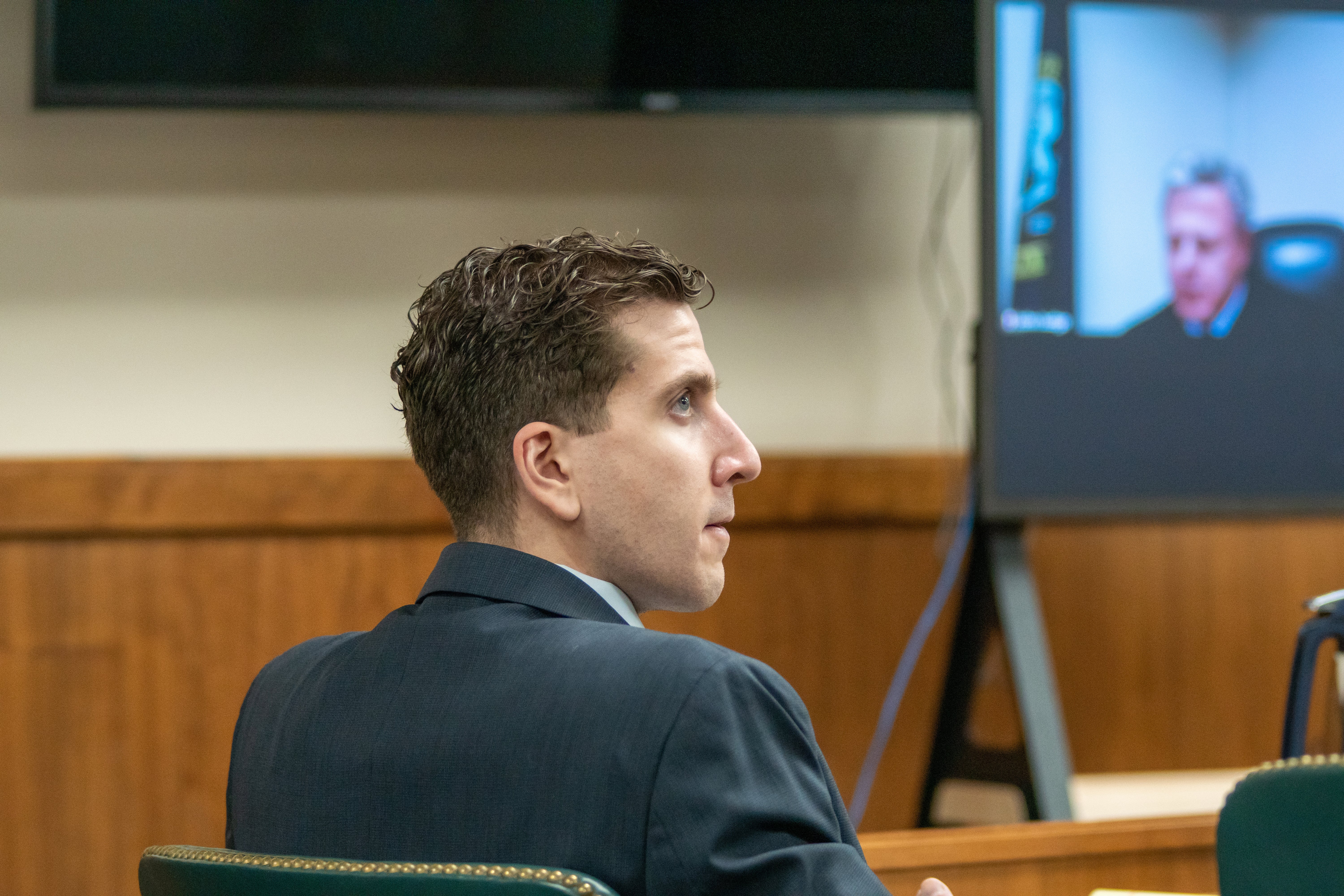Idaho killings case set to use Bryan Kohberger’s old college paper as evidence
Prosecutors said the paper Kohberger wrote in 2020 while he was a student at DeSales University in Pennsylvania ‘would be introduced to show Defendant’s knowledge of crime scenes’

Prosecutors in the case against Bryan Kohberger, the man accused of killing four University of Idaho students, are seeking to introduce a college paper he wrote as evidence. The paper, according to a recent court filing, reveals Kohberger's understanding of crime scenes.
Kohberger, 30, faces four counts of murder in the November 13, 2022, stabbing deaths of Ethan Chapin, Xana Kernodle, Madison Mogen, and Kaylee Goncalves. The students were found dead in an off-campus rental home in Moscow, Idaho. Autopsies indicated the victims were likely asleep at the time of the attack, some had defensive wounds, and each was stabbed multiple times.
Prosecutors have stated their intention to pursue the death penalty if Kohberger is convicted. His trial is set to commence on August 11. Last year, when asked to enter a plea, Kohberger remained silent, leading the judge to enter a not guilty plea on his behalf.
In a court filing Monday, prosecutors said the paper Kohberger wrote in 2020 while he was a student at DeSales University in Pennsylvania “would be introduced to show Defendant’s knowledge of crime scenes.”
The 12-page paper, entitled “Crime-scene Scenario Final,” uses the example of the killing of a woman in which a knife was apparently used.

The paper discusses the many steps authorities should take to secure and investigate a crime scene, including keeping people away to avoid contamination, obtaining a search warrant, and calling a supervisor, a coroner and forensic services.
The paper also details the equipment used for crime scene investigation, how to collect evidence, and how to enter a crime scene to avoid contamination, including wearing gloves and other protective equipment.
“Anything that is fiber-free and covers the mouth, hair and overall body would be helpful in avoiding crime-scene contamination,” the paper said.
Kohberger, then a criminal justice graduate student at Washington State University, was arrested in Pennsylvania weeks after the killings. Investigators said they matched his DNA to genetic material recovered from a knife sheath found at the crime scene.
The college paper also describes how to preserve the chain of custody for evidence. It discusses the importance of gathering surveillance footage and questioning potential witnesses as part of the investigation.
“Anyone who normally passes by the scene, such as a mailman, should be questioned and an alibi established,” the paper said. “Where were the neighbors when this happened? Their alibis should be evident and supported.”

The killings shook Moscow, a small farming community of about 25,000 people that hadn’t had a homicide in about five years. The trial was moved from rural northern Idaho to Boise after the defense expressed concerns that Kohberger couldn’t get a fair trial in the county where the killings occurred.
Judge Steven Hippler has scheduled a hearing for April 9 to consider pretrial motions. Among those to be decided are arguments over whether an autism spectrum disorder diagnosis would preclude Kohberger from being eligible for the death penalty if convicted, and over whether jurors should hear audio of a 911 call made by two women in the house roughly eight hours after the killings, as they realized one of their roommates wasn’t waking up.
The court has issued a gag order for everyone involved in the trial and won’t allow cameras in the courtroom.